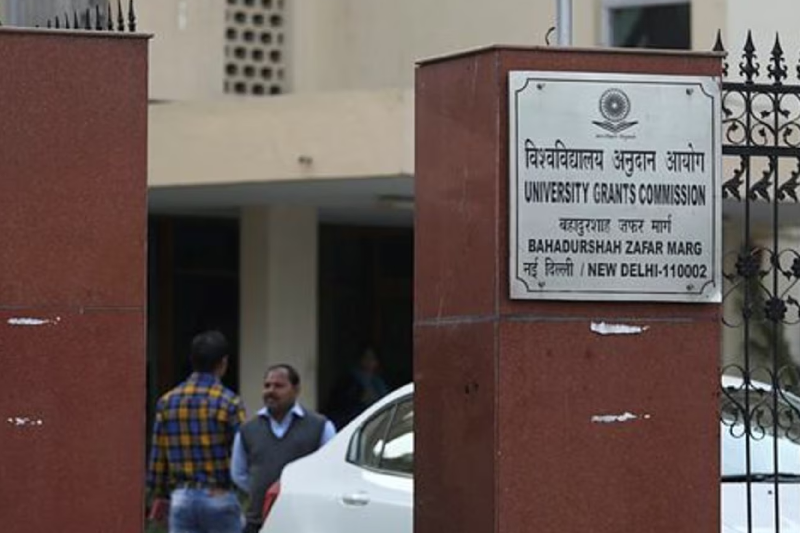
UGC Flags 54 Private Universities as Defaulters: Madhya Pradesh Leads the List
The University Grants Commission (UGC) has identified 54 state private universities across India as defaulters for failing to comply with mandatory regulations under Section 13 of the UGC Act, 1956. This move is part of the higher education regulator’s intensified monitoring of private universities to ensure transparency, accountability, and public access to critical institutional information. Among the defaulter universities, Madhya Pradesh tops the list with 10 institutions, followed by Gujarat with eight, Sikkim with five, and Uttarakhand with four.
The Importance of Transparency in Higher Education
The UGC has repeatedly emphasized the need for universities to maintain functional websites that provide accurate and accessible information to students, parents, and other stakeholders. According to the guidelines on public self-disclosure, higher education institutions must ensure that information is easily visible on the homepage without requiring login or registration. A search facility should also be available to allow stakeholders to navigate and find relevant information efficiently.
Transparency is not just a procedural requirement; it is critical to safeguard students’ interests and ensure that higher education institutions maintain credibility and accountability. By making data such as governance structures, academic programs, faculty credentials, and institutional policies publicly accessible, universities demonstrate their commitment to openness and stakeholder trust.
Details of Non-Compliance
The UGC found that 54 private universities failed to submit the mandatory inspection information. The directive under Section 13 mandates institutions to provide detailed information and supporting documents, duly attested by the registrar. These submissions are vital for the UGC to monitor compliance with academic and administrative standards.
Despite several reminders sent via email and online meetings, the universities did not adhere to these requirements. The UGC, through Secretary Manish Joshi, stated that universities were instructed to upload the filled-in formats and appendices on their websites and provide a direct link on the homepage. This would allow students and the general public to access institutional information transparently.
State-Wise Breakdown of Defaulters
Madhya Pradesh leads the defaulter list with 10 private universities failing to comply with UGC norms. Gujarat follows with eight institutions, Sikkim with five, and Uttarakhand with four. Other states collectively account for the remaining 27 defaulter universities.
This state-wise categorization highlights regional disparities in regulatory compliance and points toward the need for targeted intervention. While some states have developed better mechanisms for oversight, others are lagging, which can impact the overall quality of higher education in the region.
UGC’s Enforcement Measures
The UGC has circulated the list of defaulter universities and issued warnings, directing them to take immediate corrective action. According to officials, failure to comply may result in further regulatory action, including penalties or restrictions on academic activities.
This move follows a series of recent initiatives by the UGC to strengthen oversight of private universities. In July 2025, for example, the regulator warned 23 institutions for not appointing ombudspersons, a critical measure for addressing grievances and ensuring student welfare. By increasing monitoring and enforcement, the UGC aims to create a culture of compliance and accountability among private universities.
The Role of Functional Websites
The core requirement for public disclosure hinges on a functional, user-friendly website. Universities are expected to upload formats, appendices, and compliance certificates so that stakeholders can verify institutional standards independently.
A functional website also allows students to make informed decisions about admissions, course offerings, and faculty quality. In an era where online information forms the primary source of decision-making for students and parents, university non-compliance undermines trust and can negatively affect student choices and career prospects.
Challenges in Compliance
The failure of these universities to meet UGC norms points to broader challenges within the private higher education sector. Many institutions struggle with administrative inefficiencies, a lack of awareness regarding regulatory requirements, or inadequate resources for proper documentation and website management.
Additionally, universities may not fully appreciate the role of transparency in fostering credibility. Ensuring compliance requires continuous administrative staff training, investment in digital infrastructure, and regular audits to maintain updated and accessible information.
The Way Forward
To address these challenges, private universities must prioritize compliance with UGC directives. Establishing dedicated teams for documentation, website management, and regulatory reporting can streamline processes and prevent future lapses.
State governments and university associations can also support institutions through workshops, technical assistance, and awareness campaigns on regulatory requirements. By fostering a culture of accountability and digital readiness, universities can enhance their reputation, attract better students and faculty, and contribute positively to India’s higher education ecosystem.
Ensuring Student Safety and Empowerment
Compliance with UGC regulations is not merely a bureaucratic formality; it directly impacts students’ welfare. Transparency allows students to verify faculty qualifications, program details, fee structures, and grievance redressal mechanisms. Such access empowers students to make informed educational choices and protects them from potential malpractices or mismanagement by institutions.
Conclusion
The UGC’s action against 54 defaulter universities underscores the importance of regulatory compliance and transparency in India’s private higher education sector. With the highest number of defaulters, Madhya Pradesh, Gujarat, Sikkim, and Uttarakhand must take urgent corrective measures to align with national standards.
By ensuring proper disclosures, functional websites, and accessible information, universities can strengthen trust among stakeholders and foster a culture of accountability. For students, parents, and policymakers, these measures are essential to maintain the integrity, quality, and credibility of higher education in India.
The UGC’s initiative reminds us that regulatory oversight is not punitive but a tool to enhance institutional quality, protect student interests, and promote transparency in one of India’s most crucial sectors.



